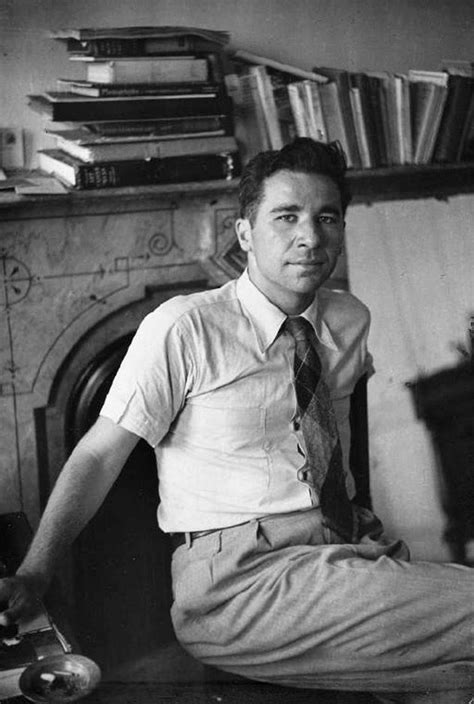A Quote by Paulo Coelho
Man improves himself as he follows his path; if he stands still, waiting to improve before he makes a decision, he'll never move.
Related Quotes
The Tathagatha... is the originator of the path unarisen before, the producer of the path unproduced before, the declarer of the path undeclared before. He is the knower of the path, the discoverer of the path, the one skilled in the path. And his disciplines now dwell following that path and become possessed of it afterwards.
Man offers himself to God. He stands before Him like the canvas before the painter or the marble before the sculptor. At the same time he asks for His grace, expresses his needs and those of his brothers in suffering. Such a type of prayer demands complete renovation. The modest, the ignorant, and the poor are more capable of this self-denial than the rich and the intellectual.
The so-called godly man may be more likely to do serious wrong than a man who deeply questions himself. The 'godly man' often zealously follows religious precepts that, in the end, justify an unjust injury to others, while the questioning man, addressing his own conscience, may have the better chance to consider all the circumstances and come to the just decision.
Man has reason, discrimination and free-will such as it is. The brute has no such thing. It is not a free agent, and knows no distinction between virtue and vice, good and evil. Man, being a free agent, knows these distinctions, and when he follows his higher nature, shows himself far superior to the brute, but when he follows his baser nature can show himself lower than the brute.
Who is the happy Warrior? Who is he
That every man in arms should wish to be?
It is the generous spirit, who, when brought
Among the tasks of real life, hath wrought
Upon the plan that pleased his boyish thought:
Whose high endeavors are an inward light
That makes the path before him always bright:
Who, with a natural instinct to discern
What knowledge can perform, is diligent to learn;
And in himself posses his own desire
And at the place where time stands still, one sees lovers kissing in the shadows of buildings, in a frozen embrace that will never let go. The loved one will never take his arms from where they are now, will never give back the bracelet of memories, will never journey afar from his lover, will never place himself in danger of self-sacrifice, will never fail to show his love, will never become jealous, will never fall in love with someone else, will never lose the passion of this instant of time.
As Lucretius says: 'Thus ever from himself doth each man flee.' But what does he gain if he does not escape from himself? He ever follows himself and weighs upon himself as his own most burdensome companion. And so we ought to understand that what we struggle with is the fault, not of the places, but of ourselves
There do exist enquiring minds, which long for the truth of the heart, seek it, strive to solve the problems set by life, try to penetrate to the essence of things and phenomena and to penetrate into themselves. If a man reasons and thinks soundly, no matter which path he follows in solving these problems, he must inevitably arrive back at himself, and begin with the solution of the problem of what he is himself and what his place is in the world around him.





































